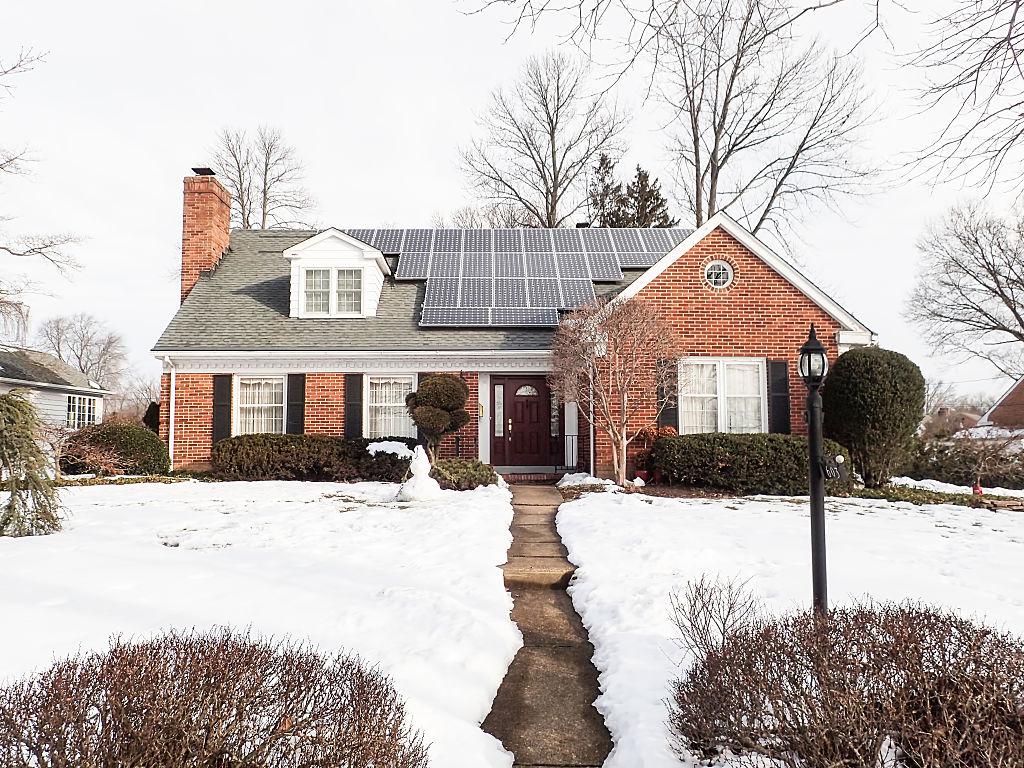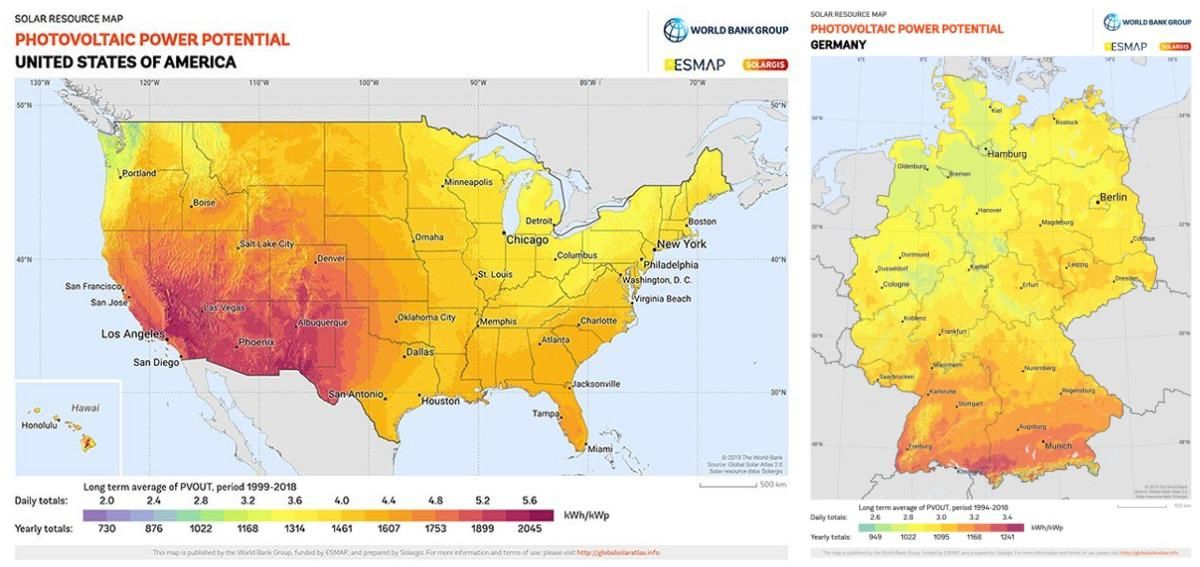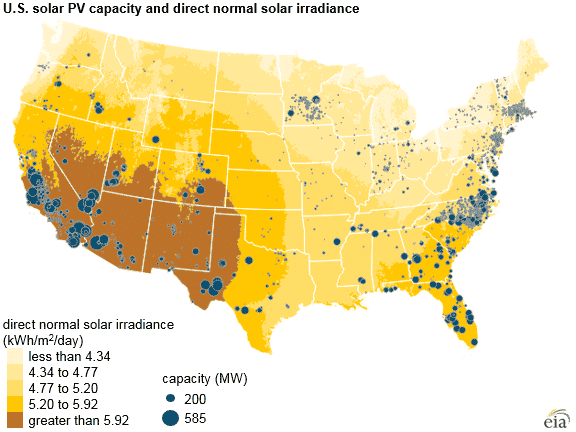
How To Talk To Your Family About Renewable Energy: 9 Common Arguments Against Solar

Robert Kirk / Contributor / Getty Images
This holiday season, you may be anticipating spending time with some family members that, let’s just say, don’t share your concern for the environment. If you find political and generational differences becoming more apparent, you may be wondering how to speak about something as important as sustainability in a way that will resonate with others.
We’re here to help. Below, you’ll find nine of the most common arguments against solar. Of course, this goes beyond just speaking with family — we hear the following misconceptions about solar from a number of sources, so we’ve decided to put together a guide about how to address them.
1. We don’t get enough sunshine here.
This is one of the most common counter-arguments to solar that we hear. If you’re reading this from anywhere in the continental U.S. (except maybe Seattle), you probably get enough sunshine for solar to be worthwhile. Take a look at Germany’s irradiation map below. The country meets over 40% of its energy needs with renewable energy, but the majority of its cities receive noticeably less sunlight than northern U.S. cities like Chicago, New York and Minneapolis.

U.S. and Germany photovoltaic power potential comparisonWorld Bank Group
What’s more, states like New Jersey, Massachusetts and New York routinely rank as some of the top states for solar energy. As you can see below, solar capacity in the U.S. is not confined to southern states in the Sun Belt. Though a solar energy system in Maine won’t be quite as efficient as one in Arizona, it can still generate enough electricity to make an installation well worth the money.

Energy Information Administration
We’ll leave you with one last fun fact in this section: solar panels actually work more efficiently as temperatures decrease. You’ll even see later on in this article that one of the top solar panels on the market is Canadian. Canadian!
2. It’s too expensive.
Solar panels are expensive! We understand that. The cost of solar won’t be worth it for everyone. However, by buying a solar energy system, you’re essentially paying for 25 years of electricity in advance.
When coupled with the solar tax credit, local incentives and energy savings, most solar energy systems pay for themselves in around five to 12 years. From there on out, your house will be running on free, renewable energy. It’s not uncommon for homeowners to save nearly $50,000 over the lifetime of their system.
As we touched on in our first misconception, you might not reach a figure as high as $50,000 in a state like Minnesota, but you’ll still likely save numbers in the tens of thousands.
3. Aren’t solar panels all made in China?
To answer this question, let’s take a look at our top solar panels of 2022 and where they’re made:
- LG: South Korea
- SunPower: USA
- Panasonic: Japan
- Silfab: USA
- Canadian Solar: Canada
- Trina Solar: China
- Q Cells: Germany, China, Malaysia, USA and South Korea
- Mission Solar: USA
- REC Solar: Singapore
- Windy Nation: USA
We’ll give China 1.5 out of 10 there. Also, it’s worth noting that a number of the top installers — even those that service homes internationally — are based in the U.S.
What we will admit, however, is that China is a global leader in its investment and procurement of rare metals like cobalt, which are used in storage systems like EV batteries. This is quite different from “all solar panels are made in China,” but it’s still an environmental and social consideration that holds weight.
4. There will be an even bigger tax credit soon.
Given the incredibly low price of solar, don’t count on a bigger solar tax credit. The current tax credit has been in place since the Bush administration. It started as a 30% credit and was introduced as part of the Energy Policy Act of 2005.
Over the years, the policy has been extended, but it has slowly declined in value, now covering just 26% of a system. In 2023, it’s set to be reduced to 22%, and it’s not slated to be extended thereafter. Now that solar has reached a reasonable price point, the government won’t see as big a need to offer financial incentives.
5. Why switch to solar myself when public utilities should do that?
Of all the arguments in this piece, I find that this one makes the most sense. It’s not a bad point.
However, one of the biggest benefits of solar energy (especially residential) is that it decentralizes our energy infrastructure. This means that every house that installs solar panels eases the burden placed on our public infrastructure to generate, transport and distribute immense loads of power to a growing nation. A decentralized clean energy economy would provide enormous benefits to the nation: lower overall costs of energy, cleaner air and water, increased access to public lands and more.
By investing in solar, homes are directly offsetting the huge impact of electricity as a public service. Even if utilities do switch entirely to renewable sources, we don’t see it happening anytime soon, and energy rates certainly aren’t projected to be lower than the cost of solar.
6. I might want to sell my house at some point. I can’t move with solar panels, and buyers won’t want them.
While it’s technically doable, it’s not cheap to remove solar panels and reinstall them on a new home. However, homes with solar panels are actually more desirable on the market, as solar actually adds to your property value.
The myth that solar panels aren’t attractive to buyers stems from the solar leasing business. A solar lease seems like a quick and easy way to cut energy costs and impact (which is true to some extent), but ultimately, a bad lease can tie a homeowner down.
There are a few reasons for this. First, when you sell your home, you have to convince the new owner to assume the lease. This doesn’t always happen. Second, canceling your lease isn’t always an option, as cancellation fees on some bad lease contracts reach as high as $20,000.
What about homeowners who don’t lease but instead take out a solar loan to purchase their panels? Will the new homeowner have to finish paying off the system?
It depends on your solar financing agreement, but in most cases, you can use some of the profit from your home sale to pay off your remaining loan balance. Because of your higher property value, even after paying off the loan, you should still make more on the sale than you would have without solar panels.
7. Won’t solar panels damage my roof?
When properly installed and maintained, solar panels are perfectly safe for your roof. Some solar companies specialize in roofing and even improve the structural integrity of your roof as part of their services. Similar to any other contractor, if you hire a shoddy one, you won’t get a great result.
Some modern solar panels are even being built into roof tiles. How can solar damage your roof when solar is your roof? We expect solar installations to become a mainstream practice of roofing contractors.
8. Climate change is natural, and we can’t do anything about it.
I would hope that no one in your household has ever said this, but sadly, we still hear this more than we’d like to.
Human activities have fundamentally increased the concentration of greenhouse gases in our atmosphere, unequivocally leading to climate change.
Without human activity, the climate would actually sooner cool down than heat up. We’ve also heard arguments about carbon being a good thing, not the boogeyman we’re led to believe. Sure, carbon is natural, and it’s an essential part of our atmosphere. But too much of anything throws off the balance, and our carbon emissions are doing just that.
This argument may not be one you can win if the person you’re debating doesn’t trust science, but the issue is important enough that you should keep trying to get through to them any way you can. (Here’s another resource that may be helpful: How To Talk To People About the Climate Crisis When Scary Facts Are Not Enough)
9. I like things the way they are.
Living in southern Louisiana, I have to say this one hits pretty close to home. Oil and gas profits provided the foundation for an entire culture on the Gulf Coast, where oil companies are household names that sponsor state fairs and the chimneys of gas refineries are so tall they dwarf even the city skylines. It’s hard to imagine life down here without oil and gas.
This is likely the toughest argument to counter. Resistance to change is often part of what defines a culture, so when addressing this, we advise you to appeal to your audience. Knowing the person who you’re speaking to, what might get them to care about the climate crisis? Do they have children? Grandchildren? Do they care about saving money? Do they care about the supply of most holiday pie ingredients?
If the last one doesn’t work, you may be on your own.
All jest aside, it can be exhausting to debate the importance of science and impactful change with people you love. Remember to try and approach subjects in ways that resonate with whomever you are speaking to, tailor your message accordingly and try to keep frustrations at bay.
The holidays can be a stressful enough time without discussing the fate of the natural world, so if necessary, don’t hesitate to drop the conversation — but remember to revisit it at another point during the year.
Karsten Neumeister is a writer and renewable energy specialist with a background in writing and the humanities. Before joining EcoWatch, Karsten worked in the energy sector of New Orleans, focusing on renewable energy policy and technology. A lover of music and the outdoors, Karsten might be found rock climbing, canoeing or writing songs when away from the workplace.

 233k
233k  41k
41k  Subscribe
Subscribe 